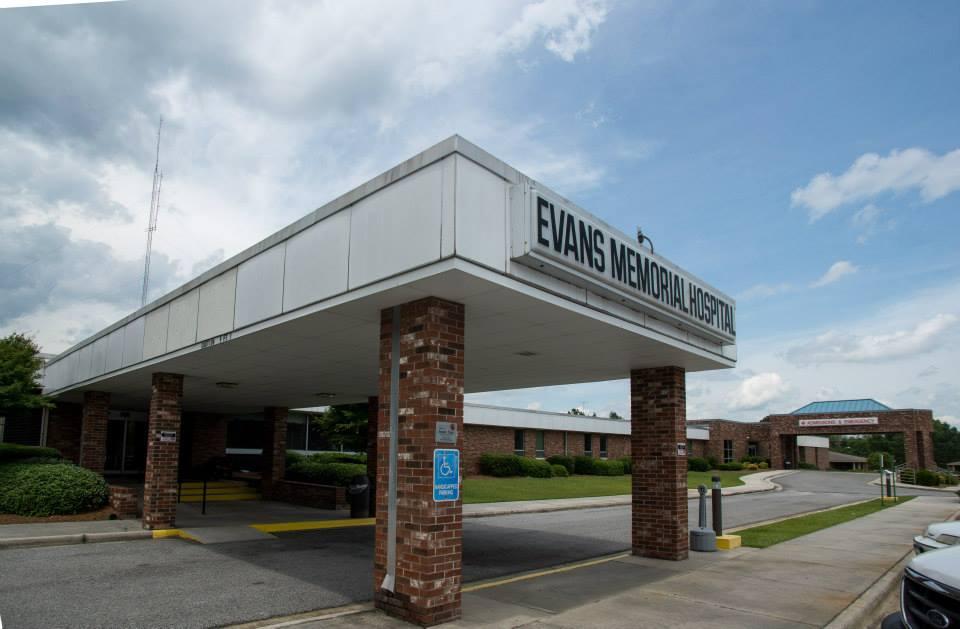
This letter was provided to AllOnGeorgia by the City of Claxton.
It was published with express permission.
Dear Evans County Board of Commissioners,
My colleagues and I are acting to respond to the COVID-19 pandemic as it enters our community. This letter and our signatures represent our individual professional opinions regarding swift and bold action that must occur to curb the potentially-devastating impact on our hospitals, our patients, Evans county, and the state of Georgia.
It is inevitable that the virus enters our community, as neighboring cities and counties are beginning to report positive results of the COVID-19 test. It is not a question of IF, but WHEN. As are many communities and hospitals across the country, we are woefully underprepared for the number of people who will need treatment when it comes to availability of ICU beds, ventilators, personal protective equipment, etc. Our only action then is to make choices which may slow the spread of the virus, so that we have a chance to not completely overwhelm our healthcare infrastructure to the point where rationing lifesaving measures becomes a reality. As such we implore you and or your local governmental counterparts to put a shelter in place order effective immediately, or as soon as is feasibly possible.
We understand that there will be unintended consequences of these drastic measures, but the alternative is worse. If we cannot slow down the rate of infection immediately, our health care system will be overwhelmed. This is what we mean when we say to “flatten the curve.”
We applaud your sophisticated understanding of this disease and its spread. As you and your public health advisors likely already know, COVID-19 is contracted through respiratory droplets (sneezes, cough, just breathing, on hands/surfaces) and should be considered highly contagious. While the majority of patients (>80%) will recover without the need to be in the hospital, up to 10% will be so ill they need to be admitted to the intensive care unit (ICU).
The death rate is much higher than with seasonal influenza, particularly for people with certain medical problems. The death rate is also significantly higher for patients over age 60 and possibly over 20% for those over the age of 80. The recommended measures of personal hand hygiene, avoiding touching your face, and aggressive social distancing are burdensome but are the best measures to reduce the number of people getting
sick. Just as important, these measures will reduce the speed with which the virus spreads.
If we can reduce the number of cases but also double or triple the time over which those cases happen, the healthcare system will be less likely to be overwhelmed by the demand; this is “flattening the curve.”. You can imagine how quickly our local and regional hospitals will fill if our community becomes sick all at once. Slowing the spread or “flattening the curve” will undoubtedly save lives.
The timing and scope of these additional measures are difficult considerations. It is possible that any measures at this time could be deemed either overly aggressive or too late. With that in mind, we advocate for steps that may be deemed overly aggressive, as this is preferred in matters of community safety. We commend you and local leaders for the actions you have taken to date, such as closing our public schools and also canceling any large official gatherings to lower the likelihood of community spread.
The hours and days ahead will be critical to mitigating community spread. While recommendations for hand hygiene and social distancing are spot on, their voluntary implementation in our community are clearly challenging and not optimally effective given the exponential growth in COVID-19 cases in numerous communities across the country despite widely-publicized recommendations for social distancing.
We know these are difficult steps, and we are hesitant to have to recommend them. We as a state may face short-term economic set-backs as a result, but the long-term economic consequences of not acting now are greater. The big-picture perspective is necessary.
We also want to acknowledge that this virus tends to be surprisingly mild and well-tolerated in most kids, healthy young adults, and middle-aged adults. This makes it really tempting to say it isn’t a big deal, most people get this virus. Although they may not be severely affected by the virus, young, healthy people must practice social distancing. In South Korea, where significantly-more testing has been done, 20-29 year-olds represented 30% of those infected. Individuals in this age group can have relatively mild symptoms but still spread the COVID-19 virus. If infected, older family members, friends, or other vulnerable community members may be hospitalized or die with this virus, particularly if there are
shortages of medical care.
Hindsight will not look kindly on actions that are taken too late here. Moreover, as health professionals, we know that the weeks to come are already at risk of overwhelming our fragile healthcare system.
Please help us so we can help our community face this crisis.
Thank you for your consideration of our perspective. We would be happy to discuss further if you have questions or concerns. Likewise, we would be happy to provide resources and guidance to you without hesitation.
Thomas Miller, MD
Family Medicine
Southern Family Medicine
Jesse Scott, MD
Internal Medicine
Southern medical Group
Kyle Parks, MD
General Surgery
Rebecca Spahos, MD
General Surgery


Chattooga Opinions
Medically Supervised Weight Loss: Inside Premier Weight Loss & Medispa

Chattooga Local News
Georgia Power Files Plan for Customer Rate Decrease with Public Service Commission

Chattooga Local Government
Carr Pushes for Permanent Halt of Medicare and Medicaid Funding for Child Sex-Change Procedures

Bulloch Public Safety
02/20/2026 Booking Report for Bulloch County

Bulloch Public Safety
01/26/2026 Booking Report for Bulloch County

Bulloch Public Safety
02/09/2026 Booking Report for Bulloch County

Bulloch Public Safety
02/16/2026 Booking Report for Bulloch County

Bulloch Public Safety
02/02/2026 Booking Report for Bulloch County

Bulloch Public Safety
01/30/2026 Booking Report for Bulloch County







